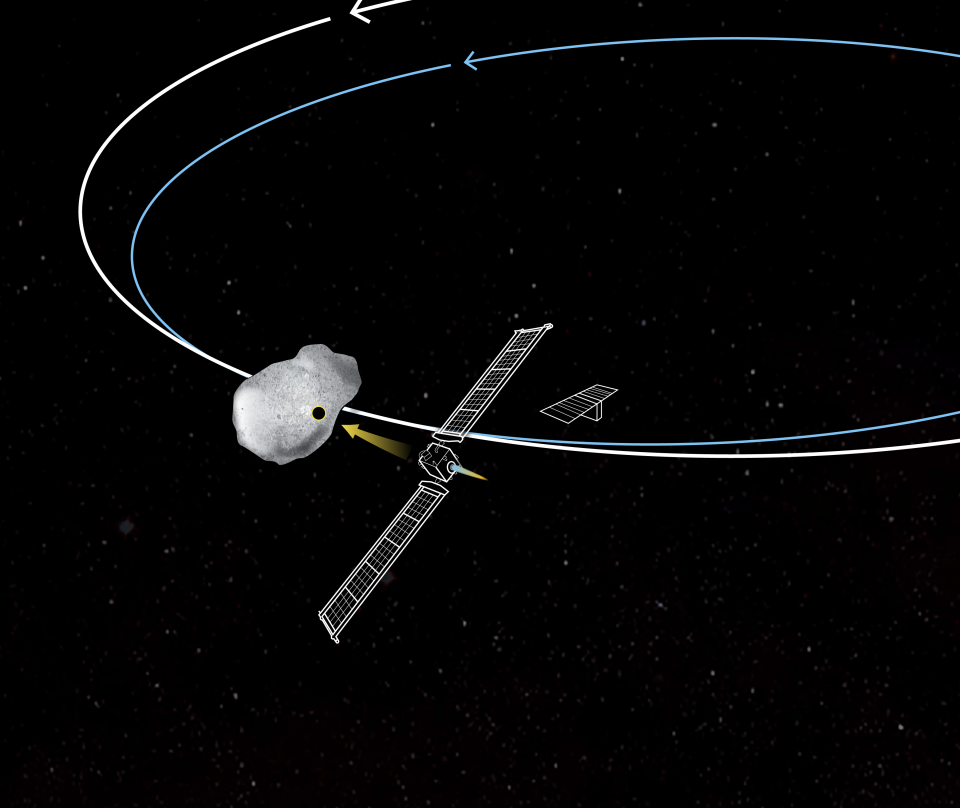Massive Hurricane Ian eyes Florida
Hurricane Ian rapidly intensifies as it hurtles toward Cuba and Florida. Fannie Mae has a plan to boost renters' credit scores. And California will soon have a new end-of-life burial option: human composting.
👋 Hello! It's Laura Davis. It's Monday. Here's all the news you need to know.
But first, look up! 💫 Stargazers across the globe will get a great view of Jupiter come Monday night – weather permitting! It's the first time the solar system's largest planet has been this close to Earth in 59 years. Here's how to see it.
The Short List is a snappy USA TODAY news roundup. Subscribe to the newsletter here or text messages here.
🌤 What's the weather up to in your neck of the woods? Check your local forecast here.
Floridians in Hurricane Ian's path prep as massive storm intensifies
The first evacuation orders along Florida's west coast went into effect Monday and residents across the state prepared to hunker down as a rapidly-intensifying Hurricane Ian hurtled toward Cuba and the U.S. Florida Gov. Ron DeSantis said more evacuations are expected. Hurricane-force winds extend up to 35 miles from the storm's center, and tropical-storm-force winds extend up to 115 miles, the National Hurricane Center said. "Floridians up and down the Gulf Coast should feel the impacts of this," DeSantis said. "This is a really, really big hurricane at this point." As soon as late Monday, Ian was forecast to strengthen into a major hurricane – Category 3 or greater – and could ultimately reach Category 4, which means sustained winds from 130 mph to 156 mph, AccuWeather said.
If you're in the cone: What to have at home for emergencies.
Hurricane Ian's forecast calls for 'rapid intensification.' What does that mean?

Fannie Mae's plan to stimulate renters' credit scores
When it comes to credit scores, homeowners have some advantages over renters – but Fannie Mae wants to even out the playing field. Here's the deal: Mortgage payments are reported to credit bureaus, but rental payments usually aren't. This hampers renters' ability to build credit history. Here's where Fannie Mae comes in: The mortgage giant plans to partner with three firms that serve as intermediaries between landlords and credit bureaus to report on-time rental payments, helping renters build their credit. Only positive payments of renters will be reported – and renters can opt out at any time. Learn more about Fannie Mae's plan, shared exclusively with USA TODAY.
What everyone's talking about
Rare look inside CIA Museum includes never-before-seen spy artifacts.
Don't worry: Costco commits to hot dog, soda combo price – maybe forever.
Celebs still deal with cheating. What does it mean for the rest of us?
Co-sleeper bed safety: Some rebranded after infant deaths, but danger remains.
LinkedIn ran undisclosed experiments on 20 million users to study success.
Fact vs. fiction: What's fake in Netflix's 'Monster: The Jeffrey Dahmer Story.'
'I grew up with corpses everywhere': Holocaust survivor tells her story on TikTok.
Looking for a nursing home? In 'unprecedented step," ownership data released on 15,000 homes.
The Short List is free, but several stories we link to are subscriber-only. Consider supporting our journalism and become a USA TODAY digital subscriber today.
Putin grants Edward Snowden Russian citizenship
Former U.S. security contractor Edward Snowden, a fugitive from American authorities who has been living in Russia since 2013, was one of 75 foreign nationals granted Russian citizenship by President Vladimir Putin on Monday at a time of high tension between the countries because of the war in Ukraine. Snowden remains wanted in the U.S. after leaking classified documents detailing government surveillance programs. He received permanent Russian residency in 2020. At the time, Snowden said he would retain his American citizenship and hoped one day to return to the U.S. He has denied sharing information with Russian intelligence agents.
Gunman identified in Russia school shooting that left 15 dead, 24 wounded.
Other developments: Man shoots commandant at Russian enlistment office; voting continues in "sham" referendums. Monday's updates.

Human composting: How does it work?
Starting in 2027, Californians will have a new end-of-life burial option: human composting. Gov. Gavin Newsom signed a bill into law Sunday that creates a state regulatory process for “natural organic reduction,” or transforming human remains into soil. Here's what you need to know.
California is the fifth state to legalize human composting, on the heels of Oregon, Washington, Colorado and Vermont.
The human composting process varies slightly based on the funeral home, but typically a person's body after death is placed in an insulated vessel packed with organic material to help the decomposing process.
Advocates say the process is a more environmentally friendly option than casket burials and cremation. And while it may seem novel, experts say it’s not dissimilar from many cultures’ traditional practices of returning a body to the ground.

Real quick
Italy shifts to far right with win for Giorgia Meloni's Brothers of Italy party.
Canada drops entry rules: Travelers won't need COVID-19 vaccines, tests.
Jimmie Johnson to retire from full-time racing, will focus on bucket list.
Thousands attend funeral for Hells Angels leader Ralph 'Sonny' Barger.
Arizona police fatally shoot man who they say threw rocks at them.
Texas 'hero' couple rescues baby found abandoned in their shed.
NFL Week 3 winners, losers: Jaguars, Dolphins are surprise contenders.
In rare hearing, gunman in one of first U.S. mass school shootings denied parole.
NASA spacecraft to collide with an asteroid – on purpose
After a 10-month journey, NASA will deliberately crash a small, fast-moving spacecraft into an asteroid 7 million miles away Monday evening in hope of changing its orbit – the first test of a planetary defense system to deflect asteroids and other objects that could threaten Earth. The 1,260-pound vending-machine-sized craft is called DART, for Double Asteroid Redirection Test. The impact, which will destroy the spacecraft traveling at 14,760 mph, is predicted to occur at 7:14 p.m. EDT Monday. Regardless of the outcome, the mission will give astronomers and scientists important data on the response if an asteroid is on a collision course with Earth. Here's how they plan to do it.

A break from the news
🛒 Another Amazon Prime Day? Yep. Here's what you need to know.
💌 Cheating suspicion: "Are his texts inappropriate or am I overreacting?"
🍿 'Blonde' review: Ana de Armas' Marilyn Monroe biopic is brutal misery.
📲 Make your phone work smarter not harder! All the custom shortcuts you need.
Laura L. Davis is an Audience Editor at USA TODAY. Send her an email at laura@usatoday.com or follow along with her adventures – and misadventures – on Twitter. Support quality journalism like this? Subscribe to USA TODAY here.
This is a compilation of stories from across the USA TODAY Network. Want this news roundup in your inbox every night? Subscribe to the newsletter here or text messages here.
This article originally appeared on USA TODAY: Hurricane Ian, credit scores, Edward Snowden, human composting. It's Monday's news.

 Yahoo Movies
Yahoo Movies 